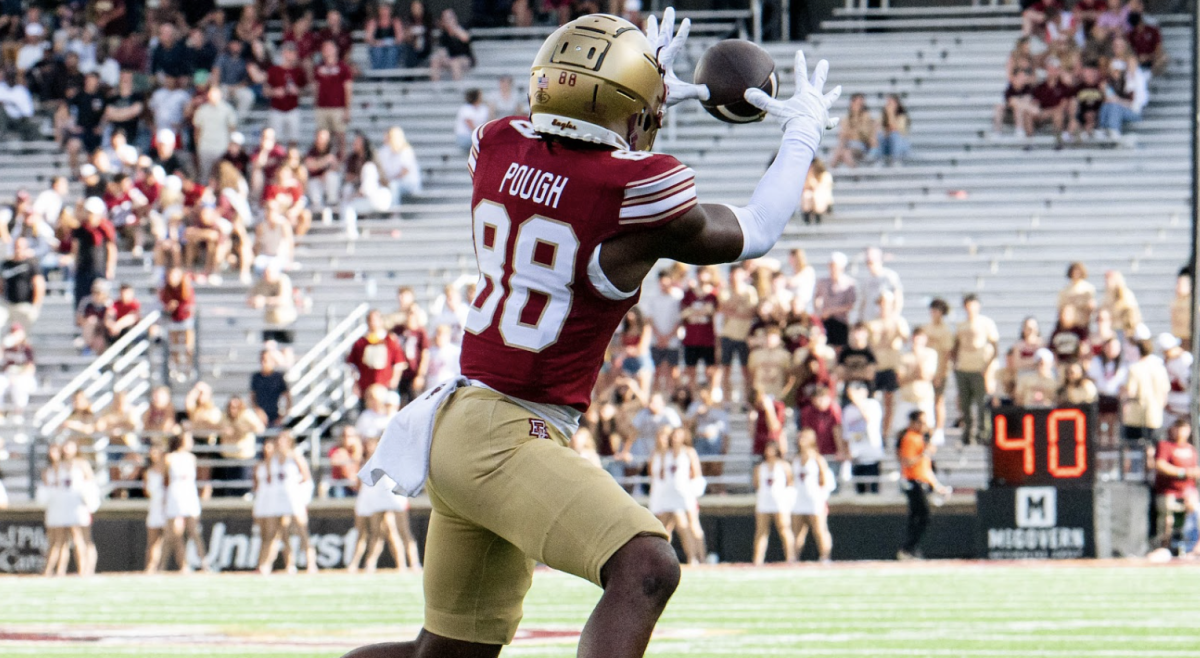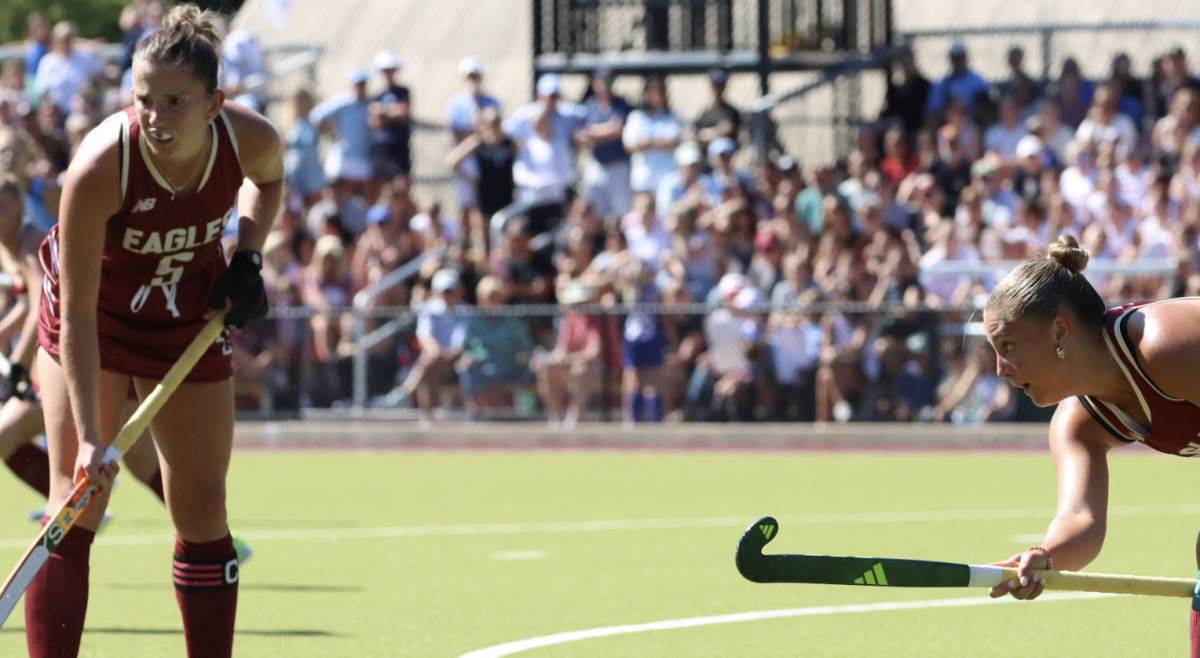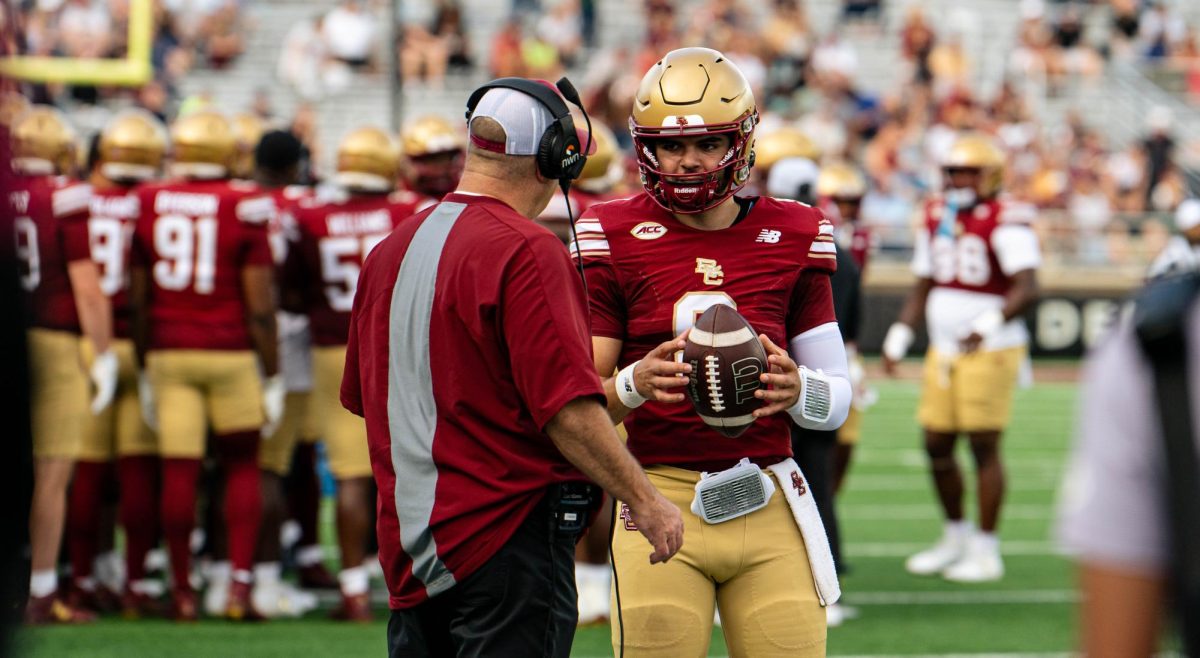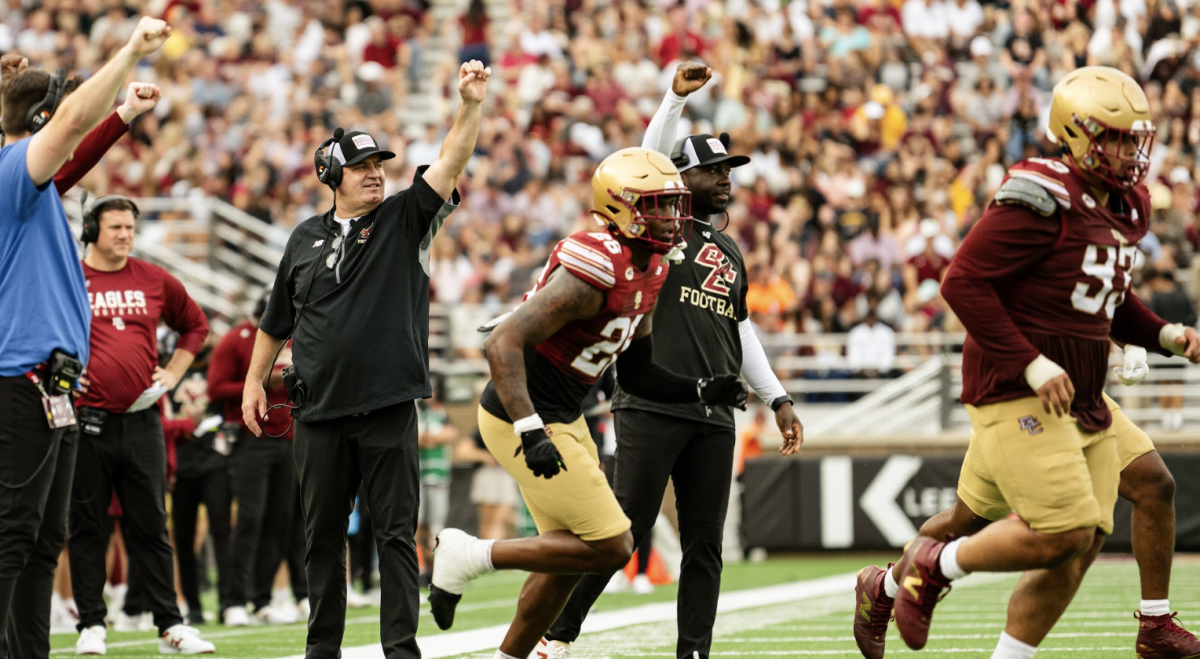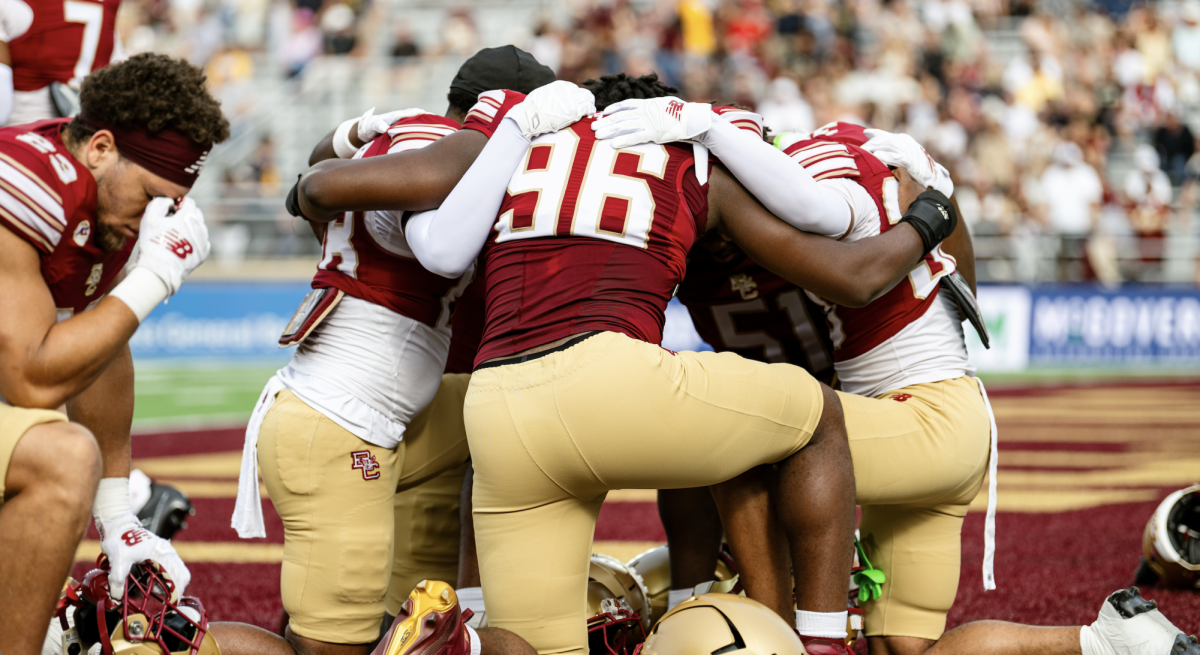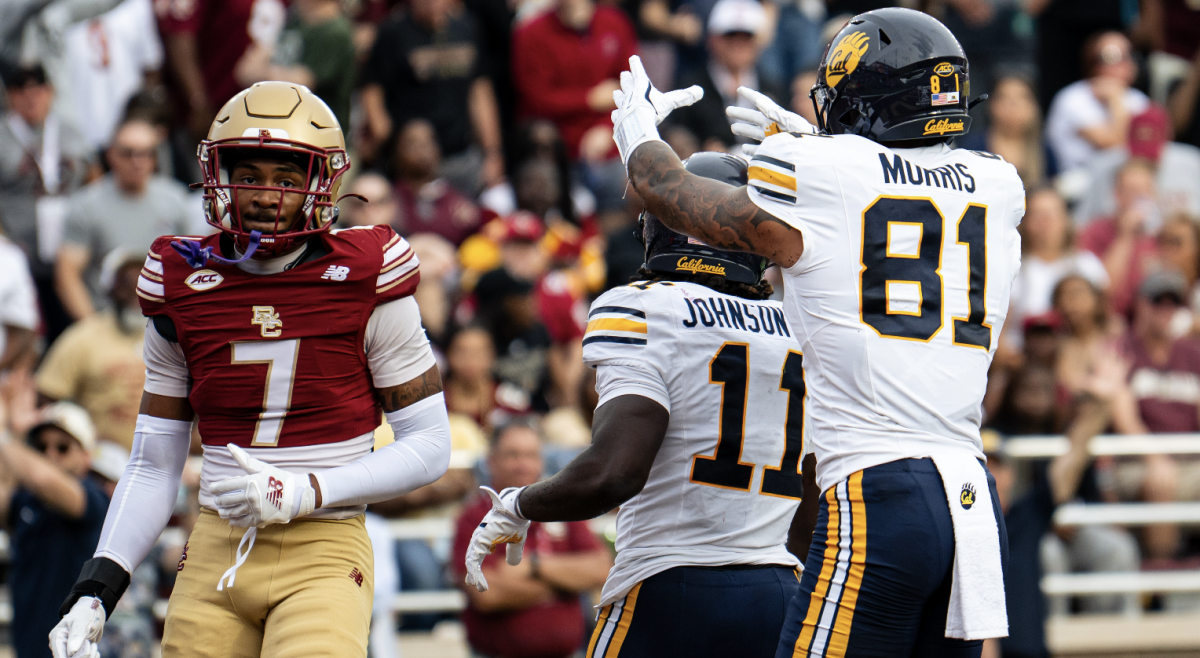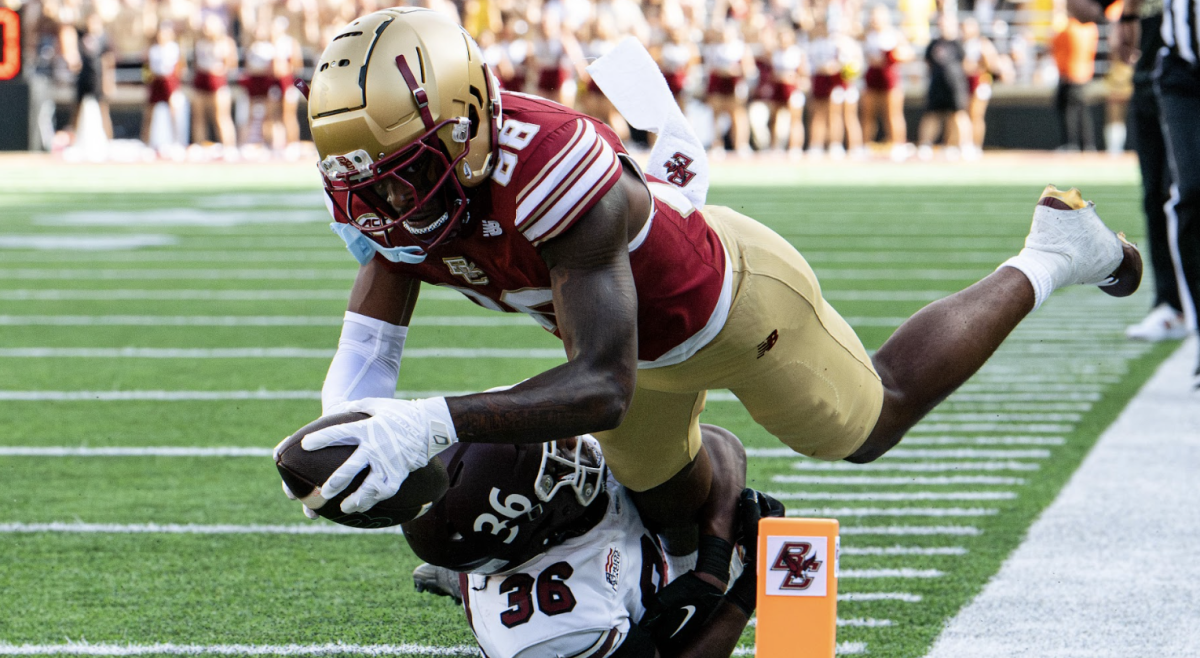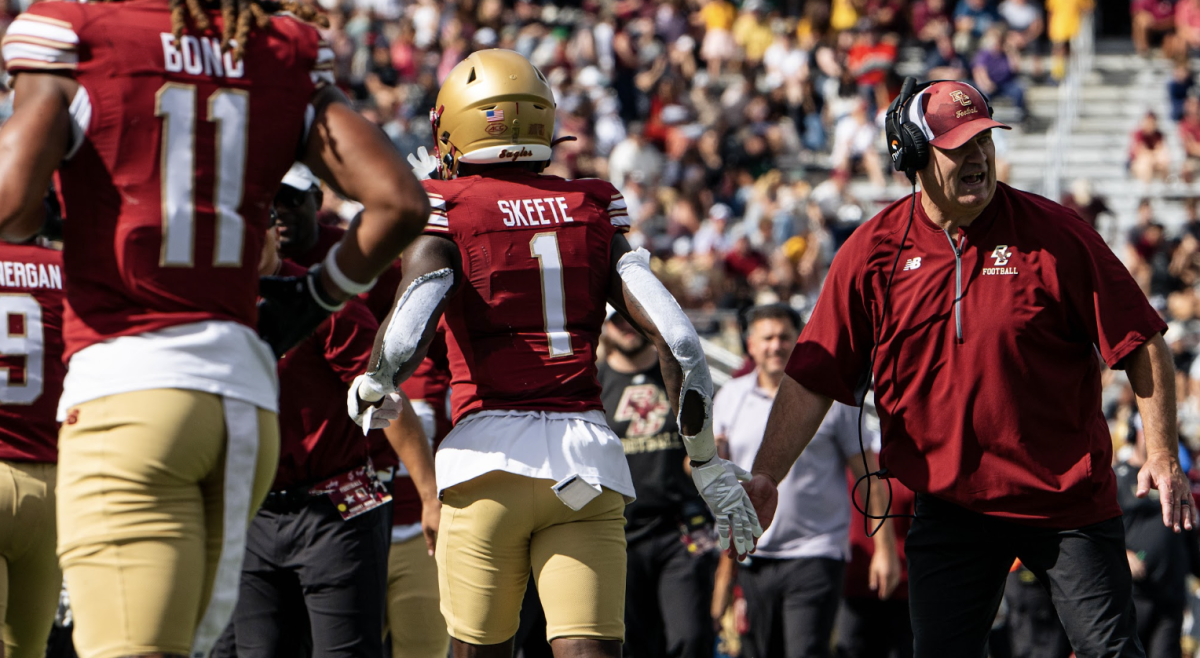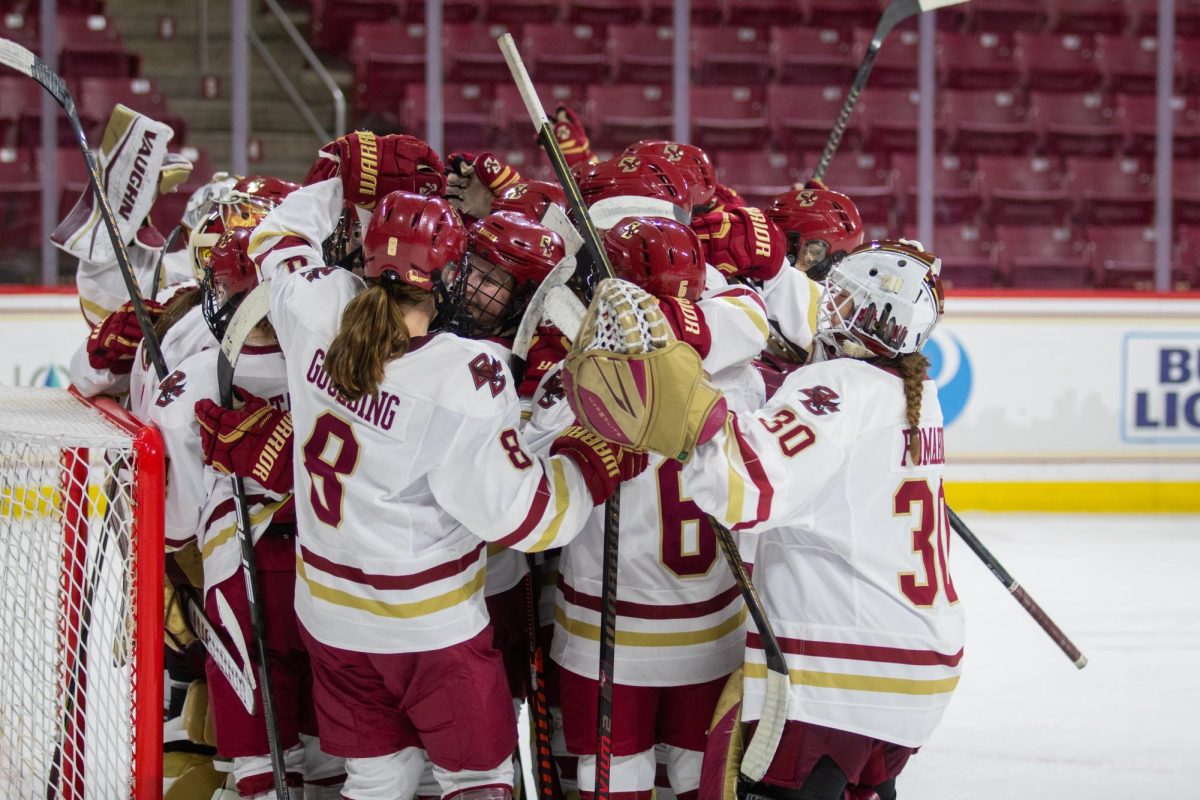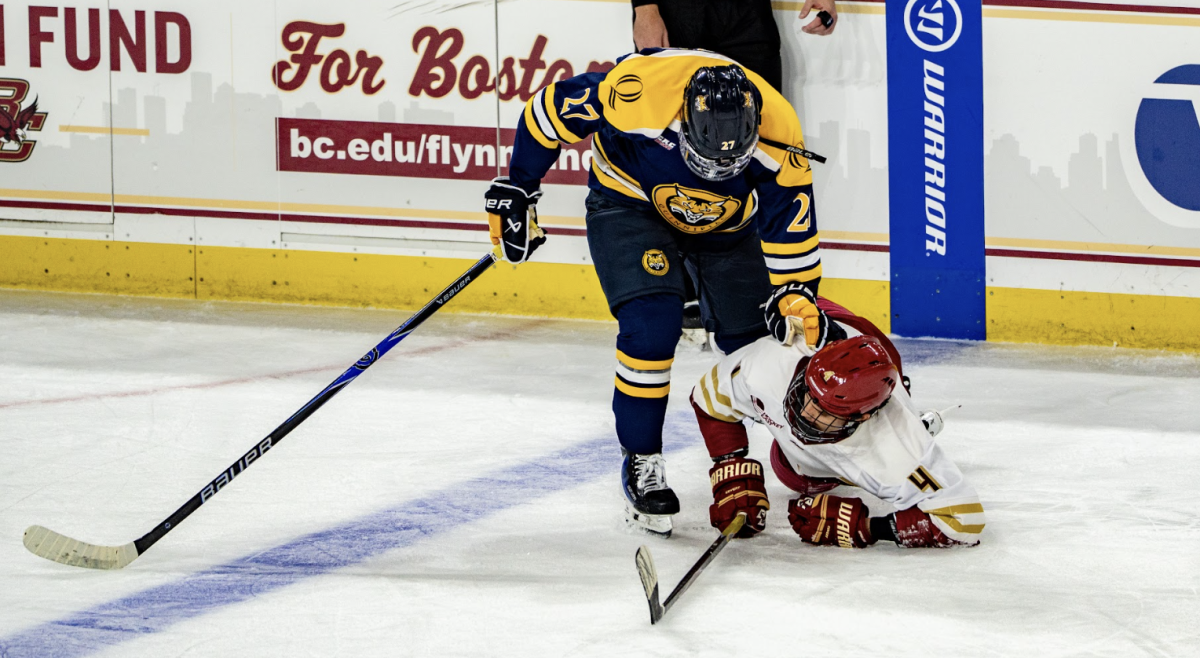With a little over 14 minutes to go in the second quarter, Dylan Lonergan dropped back to pass while wide receiver Reed Harris flew up the field on a deep post route.
With a few yards of separation between him and Pittsburgh’s secondary, no one stood between Harris and the end zone. Finally, it seemed like the time had arrived for Boston College football to get on the board with a touchdown.
But unfortunately for the Eagles, Lonergan overthrew Harris. The pass fell incomplete, and the play came to embody everything that was wrong with BC’s passing game during Saturday’s 48–7 loss to Pitt.
At the beginning of the season, the Eagles’ passing game was the one bright spot for a team that was otherwise struggling—both in the run game and on defense. Even while suffering two losses, Lonergan threw for 991 yards and nine touchdowns through his first three games.
Throughout BC’s blowout loss to the Panthers, however, head coach Bill O’Brien and offensive coordinator Will Lawing failed their young quarterback at every turn with a poor offensive scheme.
Let’s be clear, Lonergan had a bad game on Saturday.
Over the course of the game, he only put up 89 passing yards and no touchdowns. He missed throws, took sacks, and made some very questionable reads.
But the offensive playcalling featured an incessant usage of check-downs thrown behind the line of scrimmage and deep shots down the field. All young quarterbacks need to have the game simplified for them to some extent, and Lonergan’s woes on Saturday prove that he is no exception.
Going forward, BC’s playcallers have to create short-gain opportunities over the middle. Lonergan—and his receivers, for that matter—need easy completions to gain momentum, particularly early in games.
On the aforementioned second-quarter play, four players ran routes for BC. One of them sat in the flat, providing Lonergan with an easy target, while all three others ran out for deep posts and crossers.
Lonergan was forced to choose between either making a difficult throw or dishing it out to the flat against a Pitt defense that had been smothering BC’s screens all day.
The result was a missed throw that turned 2nd-and-long into 3rd-and-long—a situation the Eagles found themselves in throughout the afternoon.
Lonergan played one half and one drive in the third quarter, throwing only 18 passes. Of all his attempts, only three were caught between 1 and 15 yards past the line of scrimmage—two of which came only after the Eagles were already down 24 points.
The rather inexplicable lack of short-gain passing options greatly hindered the Eagles’ ability to move the ball through the air. It doesn’t help that abysmal blocking for screen passes made throwing to the flat an unreliable option for picking up a few yards.
Lonergan had more trouble completing his passes than he had all season, connecting with targets on just 50 percent of his throws while his average yards-per-attempt fell to a season-low 4.9.
Shorter passing options would allow Lonergan to make easier throws and get rid of the ball quicker under pressure, helping the Eagles avoid chronic 3rd-and-long situations.
And the need to avoid those situations is a desperate one. Throughout the loss to Pitt, the Eagles converted on just four of their 12 third-down chances.
As a result, an already struggling defense found itself constantly on the field—tired and unable to stop the Panthers’ offense from marching down and scoring. All game long.
Meanwhile, BC’s offense floundered on every drive.
That is the anatomy of a blowout. And it must change if this program is going to play competitive football anytime soon.

